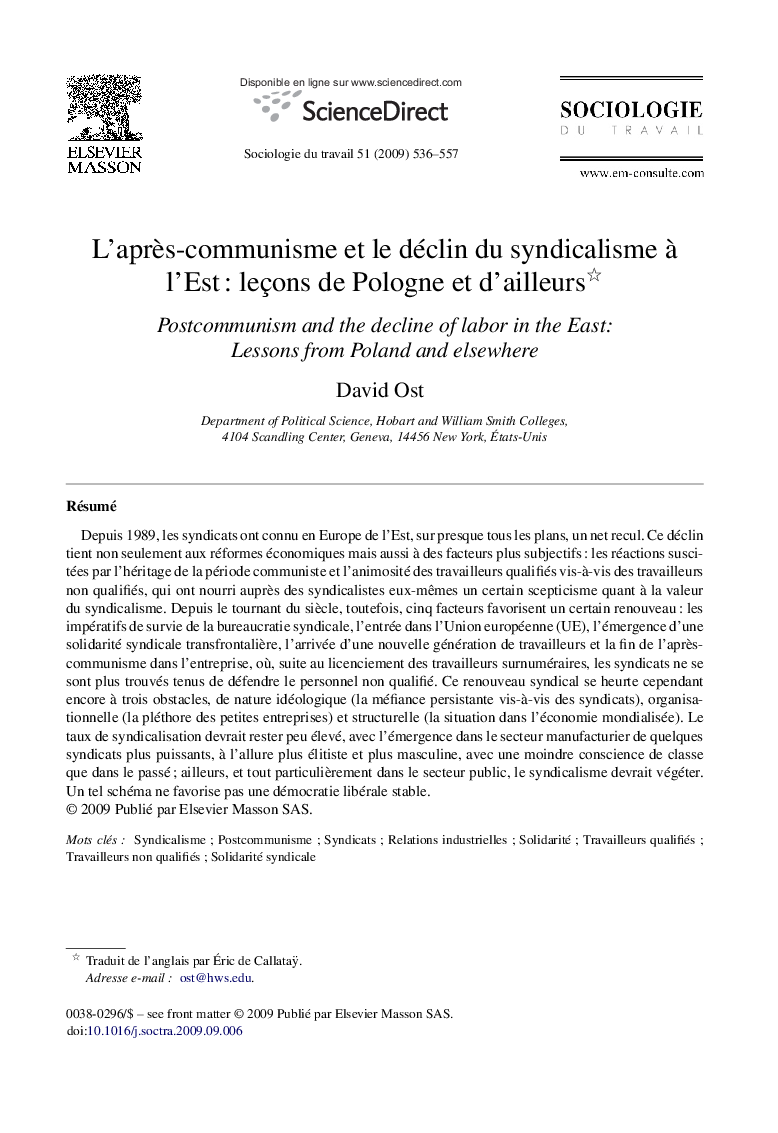| کد مقاله | کد نشریه | سال انتشار | مقاله انگلیسی | نسخه تمام متن |
|---|---|---|---|---|
| 1130306 | 955430 | 2009 | 22 صفحه PDF | دانلود رایگان |
عنوان انگلیسی مقاله ISI
L'après-communisme et le déclin du syndicalisme à l'Est : leçons de Pologne et d'ailleurs
دانلود مقاله + سفارش ترجمه
دانلود مقاله ISI انگلیسی
رایگان برای ایرانیان
کلمات کلیدی
موضوعات مرتبط
علوم انسانی و اجتماعی
علوم اجتماعی
جامعه شناسی و علوم سیاسی
پیش نمایش صفحه اول مقاله

چکیده انگلیسی
Trade unions in Eastern Europe have declined in almost all aspects since 1989, due not just to economic restructuring but to subjective factors such as reactions to communist-era legacies and skilled workers' animosities towards the unskilled, which made union officials themselves skeptical of the value of unions. Starting around the turn of the new century, however, five factors now favor revival: survival imperatives of the union bureaucracy, incorporation into the European Union, emerging cross-border labor solidarity, a new generation of workers, and the end of postcommunism in the firm, or the dismissal of unessential workers, which means union officials no longer need to defend the unskilled. Three obstacles, however, continue to work against union revival: ideological (continued distrust of unions), organizational (plethora of small firms), and structural (location in the global economy). Organized labor is likely to remain weak, with a few stronger unions emerging in the manufacturing sector that are more elitist, male, and less class oriented than those in the past, while unions chiefly in the public sector would flounder. Such an arrangement is not conducive to stable liberal democracy.
ناشر
Database: Elsevier - ScienceDirect (ساینس دایرکت)
Journal: Sociologie du Travail - Volume 51, Issue 4, OctoberâDecember 2009, Pages 536-557
Journal: Sociologie du Travail - Volume 51, Issue 4, OctoberâDecember 2009, Pages 536-557
نویسندگان
David Ost,